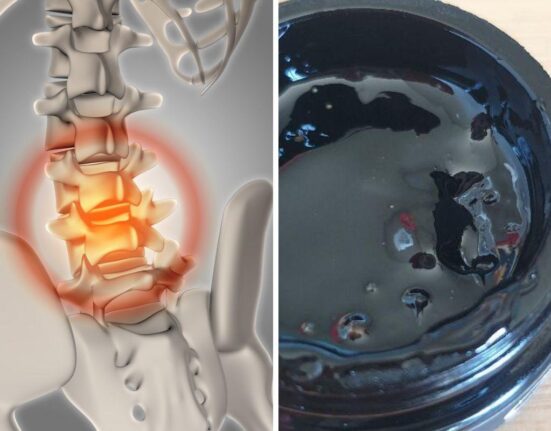Cancer and parasites are two words that don’t commonly go together, yet they may have more in common than we previously thought. Recent research has uncovered some striking similarities between cancer cells and parasites, including their ability to evade the body’s natural defenses and rely on specific cellular pathways to survive and replicate.
These similarities have led researchers to explore the potential of using medications that were originally designed to treat parasitic infections as anticancer agents. One such medication is fenbendazole, which has shown promise in treating various types of cancer in preclinical studies and case reports.
In this article, we will delve into several inspiring success stories of individuals who have used fenbendazole to successfully treat their cancer, and explore the exciting potential of this unconventional treatment approach.
What do parasite cells and cancer cells have in common?
Cancer cells and parasite cells share several characteristics, which may help explain why certain medications that are effective against parasites have also shown promise in treating cancer.

Fenbendazole targets the metabolic pathways of parasites eventually killing them.
One of the key similarities between cancer cells and parasite cells is their ability to evade the body’s natural defenses. Both types of cells can develop mechanisms to avoid detection and destruction by the immune system, allowing them to grow and spread throughout the body.

Both cancer cells and parasite cells also rely on certain cellular pathways and metabolic processes to survive and replicate. Targeting these pathways with medication can disrupt the growth and survival of the cells, ultimately leading to their death.
In some cases, medications that were originally developed to treat parasitic infections have been found to be effective against cancer cells, due to these shared characteristics.
For example, fenbendazole, a medication commonly used to treat parasitic infections in animals, has shown promise as an anticancer agent in some preclinical studies.

While the similarities between cancer cells and parasite cells are not fully understood, ongoing research is helping to shed light on the underlying mechanisms that drive both types of cell growth and proliferation. By understanding these mechanisms, researchers may be able to develop more effective treatments for both parasitic infections and cancer.
How does fenbendazole help remove parasites?
Fenbendazole is a medication commonly used to treat parasitic infections in both animals and humans. It works by interfering with the metabolism of the parasites, ultimately leading to their death.
Fenbendazole is an effective treatment for a wide range of parasitic infections, including hookworms, roundworms, whipworms, and tapeworms, among others. It is typically administered over a period of several days or weeks, depending on the severity of the infection.
When taken orally, fenbendazole is absorbed into the bloodstream and distributed throughout the body. It then enters the intestines, where it targets the parasites living there.

Fenbendazole works by binding to certain proteins in the parasites, which interferes with their ability to absorb glucose and other nutrients. Without these essential nutrients, the parasites are unable to survive and eventually die off.
It’s important to note that fenbendazole is a prescription medication and should only be used under the guidance of a healthcare professional.
What is a typical round of fenbendazole in an average adult and what is the mg dosage?
The dosage and duration of fenbendazole treatment can vary depending on the type of parasitic infection being treated and other individual factors such as age and overall health.
The following information is provided for general reference purposes only, and it’s important to note that a healthcare professional should always be consulted before taking any medication.

For the treatment of certain parasitic infections in adults, a typical round of fenbendazole may involve taking 100 mg of the medication orally once per day for several days or weeks. The exact duration of treatment will depend on the specific infection being treated and the severity of the symptoms.
It’s important to note that the above dosage is just a general guideline, and the actual dosage and duration of treatment may vary depending on the individual circumstances. Additionally, fenbendazole may interact with other medications, so it’s important to inform your healthcare provider of all medications you are currently taking before starting treatment with fenbendazole.
Fenbendazole Cancer Success Stories
1. Mary C- Stage 3 liver cancer, not responding well to traditional treatments
Mary had been struggling with alcoholism for many years, and her excessive drinking had taken a toll on her health. After experiencing persistent abdominal pain, she went to see a doctor and was diagnosed with stage 3 liver cancer.
She was told that her prognosis was poor, and that she would need aggressive treatment if she hoped to survive. She started traditional radiation and chemotherapy, and was not responding well to this at all.

Mary was determined to fight back against her cancer, and began researching alternative treatments in addition to the chemotherapy and radiation therapy recommended by her doctors. That’s when she came across an article about fenbendazole, a medication commonly used to treat parasitic infections in animals that had shown promise as an anticancer agent.
While fenbendazole had not yet been approved for use in humans, Mary was willing to try anything that might help her beat her cancer.
She worked with her healthcare team to come up with a treatment plan that included daily doses of fenbendazole, along with other supplements and lifestyle changes aimed at boosting her immune system and overall health.
Despite the skepticism of some of her doctors, Mary persisted with her unconventional treatment plan, and over time, she began to notice improvements in her condition. Her abdominal pain subsided, and follow-up scans showed that the tumors in her liver were shrinking.

After several months of treatment, Mary received the news that she had been hoping for – her cancer was in remission. She continued taking fenbendazole as part of her ongoing cancer maintenance plan, along with other healthy habits such as regular exercise, a balanced diet, and stress reduction techniques.
Today, Mary is cancer-free, and credits her success to her determination, her healthcare team, and the unconventional treatment approach that included fenbendazole.
While her journey was not easy, she hopes that her story can inspire others who are struggling with cancer to explore all of their treatment options, including those that may not yet have mainstream acceptance.
2. Glen, Multiple Myeloma
Glen had been working in a high-stress job for many years when he was diagnosed with multiple myeloma, a type of cancer that affects the plasma cells in the bone marrow. He underwent several rounds of chemotherapy, but found that the treatment was making him feel worse than the cancer itself.
Desperate for a solution, Glen began researching alternative treatments and came across an article about fenbendazole, a medication used to treat parasitic infections in animals that had shown promise as an anticancer agent.
Despite being hesitant to try a medication not yet approved for human use, Glen felt he had no other choice – his life was at stake. He reached out to his neighbor, who had a friend that had also experienced success with fenbendazole in treating cancer, and decided to give it a try.

Glen worked with his oncologist to come up with a treatment plan that included daily doses of fenbendazole, along with other supplements and lifestyle changes aimed at boosting his immune system and overall health.
Over time, Glen began to notice improvements in his condition. His cancer markers were decreasing, and follow-up scans showed that his tumors were shrinking. He also experienced fewer side effects than he had with chemotherapy, and felt more energized and optimistic about his future.

After several months of treatment, Glen received the news that he had been hoping for – his cancer was in remission. He continued taking fenbendazole as part of his ongoing cancer maintenance plan, along with other healthy habits such as regular exercise, a balanced diet, and stress reduction techniques.
Today, Glen is cancer-free and grateful for the unconventional treatment approach that included fenbendazole.
While his journey was not easy, he hopes that his story can inspire others who are struggling with cancer to explore all of their treatment options, including those that may not yet have mainstream acceptance.
How do you know fenbendazole is working or has done its job?
The effectiveness of fenbendazole can be assessed in several ways, depending on the type of parasitic infection being treated.
In the case of intestinal worm infections, such as roundworm or hookworm, a follow-up stool examination may be performed to determine whether the parasites have been eliminated from the body.

This is typically done several weeks after completing the course of fenbendazole treatment. If no worms are detected in the stool sample, it is a sign that the treatment has been successful.
For other types of parasitic infections, such as lungworm or Giardia, the effectiveness of fenbendazole may be assessed through clinical symptoms and/or laboratory tests. Improvement in symptoms such as coughing, diarrhea, or abdominal pain may indicate that the medication is working.
Additionally, blood tests or other laboratory tests may be used to measure changes in the levels of certain markers in the body that are associated with the infection or inflammation.

It’s important to note that the length of time it takes for fenbendazole to work may vary depending on the type and severity of the parasitic infection, as well as individual factors such as age and overall health.
It’s also possible that a second or third course of treatment may be needed to completely eliminate the parasites.
If you have any concerns about the effectiveness of fenbendazole or the status of your parasitic infection, it’s important to consult with a healthcare professional.
What are the side effects of taking fenbendazole if a person is not taking any other medications?
Fenbendazole is considered to be a safe and effective medication when used as directed by a healthcare professional. However, like all medications, it may cause side effects in some people. Here are some of the potential side effects of fenbendazole:
- Nausea and vomiting: Fenbendazole may cause gastrointestinal upset, including nausea, vomiting, and diarrhea.

- Dizziness or headache: Some people may experience dizziness or headaches while taking fenbendazole.

- Allergic reaction: Rarely, fenbendazole can cause an allergic reaction, which may include difficulty breathing, swelling of the face or throat, or hives.
- Abnormal liver function tests: Fenbendazole may cause elevations in liver enzymes, which can be detected through blood tests.
- Anemia: In rare cases, fenbendazole may cause a decrease in red blood cell count, leading to anemia.
It’s important to note that the above side effects may not occur in everyone who takes fenbendazole, and the severity and duration of the side effects may vary.
If you experience any severe or persistent side effects while taking fenbendazole, it’s important to consult with a healthcare professional.
Discuss the use of fenbendazole with your healthcare provider
While it can be effective in treating parasitic infections, it may also have side effects and can interact with other medications. Regular monitoring by a healthcare professional is recommended during treatment with fenbendazole.
Sources and additional reading
These sources provide a glimpse into the ongoing research on fenbendazole as a potential treatment for cancer, and highlight the need for further investigation into its safety and efficacy in humans.
It’s important to note that while these studies show promise, more research is needed before fenbendazole can be widely recommended as a cancer treatment.
- “Fenbendazole acts as a moderate microtubule destabilizing agent and causes cancer cell death by modulating multiple cellular pathways” (https://www.nature.com/articles/srep11918) – This study, published in Scientific Reports in 2015, investigated the anticancer properties of fenbendazole and how it affects various cellular pathways involved in cancer growth and survival.
- “Fenbendazole as a Potential Anticancer Drug: A Review of the Literature” (https://www.ncbi.nlm.nih.gov/pmc/articles/PMC6623919/) – This review article, published in Cureus in 2019, summarizes the existing evidence on fenbendazole as a potential anticancer drug, including preclinical studies and case reports.
- “Fenbendazole: a forgotten drug? A potential addition to the chemotherapeutic arsenal against cancer” (https://www.ncbi.nlm.nih.gov/pmc/articles/PMC6980979/) – This article, published in Infectious Agents and Cancer in 2020, discusses the potential of fenbendazole as an anticancer agent based on preclinical studies and case reports, and suggests avenues for further research.
The links used on thewellthieone.com are affiliate links, which may provide a small commission. This does not increase the price of the goods for the consumer whatsoever. What it does is ensure that useful content like this can continue to be produced. Thank-you for enjoying our content and allowing us to continue to provide more.







